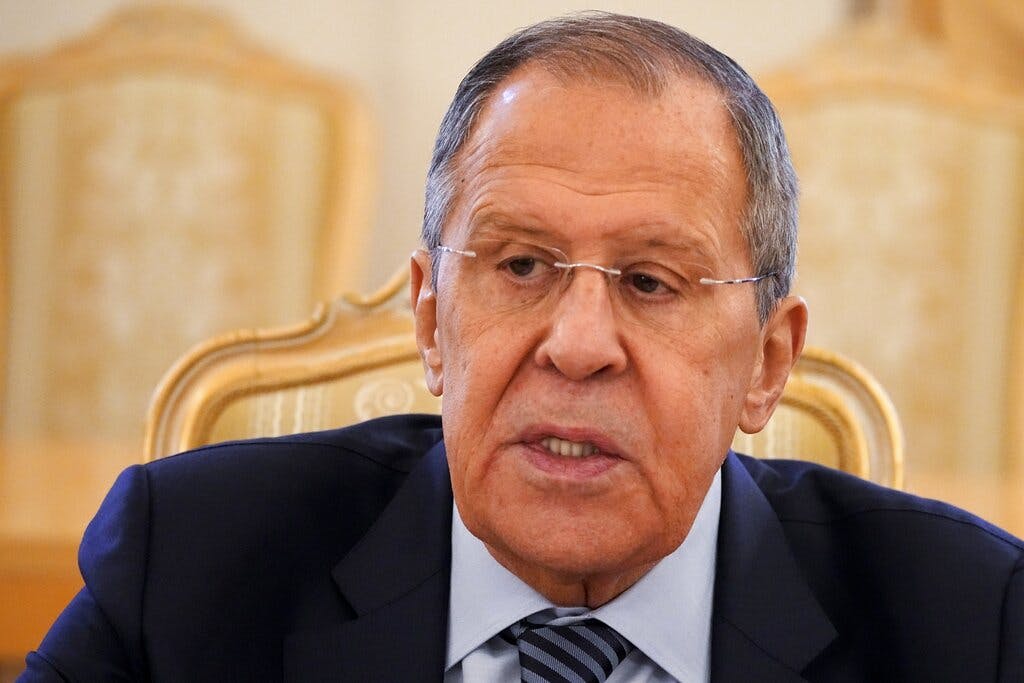Russia Embarks on Latin American Charm Offensive as America Abandons Monroe Doctrine
Washington’s loss of sway over Latin America is by and large self-inflicted.

A Russian delegation will travel to leftist-led Brazil, Nicaragua, Cuba, and Venezuela in the second half of April, Moscow’s foreign minister Sergei Lavrov announced last week.
As far back as the Soviet era, Moscow has sought to control its “near abroad,” including neighbors like Ukraine. Now the Kremlin is emulating a similar American concept, the Monroe doctrine, which Washington has all but discarded in recent decades.
As the countries emerge from under America’s dominance, Russia will explore ties in the western hemisphere, Mr. Lavrov said. Latin American leaders are “playing an increasingly prominent role in the multipolar world order,” the foreign minister added, referring to a term widely used to weaken Washington’s decades-old global leadership.
Mr. Lavrov announced his Latin American tour with an article titled “Russia and Latin America: Forward-looking Partnership and Cooperation,” published on the website of Moscow’s foreign ministry. In it, he denounced the West’s “stubborn desire” to “maintain global dominance” in a unipolar world order.
“This is what stands behind long-time Western policies to interfere in the internal affairs of sovereign states,” Mr. Lavrov wrote, adding that the West makes extensive use of illegitimate sanctions and “dirty information war tricks.”
Brazilian press outlets are reporting that the Russian delegation will arrive at Brasilia on April 17. Mr Lavrov’s trip follows a Moscow visit in March of President da Silva’s top advisor, Celso Amorim, who discussed with President Putin peace plans for Ukraine.
Following that meeting, Mr. da Silva said that Ukraine “cannot want everything” and suggested that to begin peace negotiations, Kyiv must renounce claims to Crimea, annexed by Russia in 2014.
Any talk of peace must begin with the principle of a “new world order” free from American domination, Mr. Lavrov said last week during a trip to Turkey, according to the Moscow Times .
Mr. Lavrov’s Latin America trip follows diplomatic outreach by Mr. da Silva, whose ideas of a “peace club” include asking Kyiv to renounce its territory under mediation by so-called non-allied countries, the director of the Americas Program at the Center for the Strategic and International Studies, Ryan Berg, tells the Sun.
“The narrative that the Global South has championed, furthered by leaders like Lula, has helped Russia to shift the prevailing narrative of victim-aggressor to one of greater ambiguity in who is at fault for the war,” Mr. Berg says. “Lavrov’s trip will seek to stoke further rhetoric in this vein.”
Earlier this year, Washington called on Latin American leftists leaders to send Ukraine unused, soon-to-rot arms, including those received from Russia. They didn’t budge. Brazil is not interested “in passing on munitions to be used in war,” Mr. da Silva said. “Brazil is a country of peace.”
Washington’s loss of sway over Latin America is by and large self-inflicted. “The era of the Monroe Doctrine is over,” President Obama’s secretary of state, John Kerry said in a 2013 speech to the Organization of American States in Washington D.C.
The relationship between the United States and Latin America is not about Washington interfering in the affairs of other nations, Mr. Kerry said. It’s about viewing each other as equals, “sharing responsibilities,” and “cooperating on security issues,” he added.
Currently serving as President Biden’s climate envoy, Mr. Kerry traveled to Brasilia in February to promote cooperation with Mr. da Silva on “combating the climate crisis.” Russia, in contrast, is appealing to the populist socialism of the region’s leftist leaders and their deep resentment of America.
Countries are now implementing their own agendas, guided by only their national interests, Mr. Lavrov wrote in his article. “Naturally, about three-quarters of the countries around the globe, including our Latin American friends, chose not to join the anti-Russia sanctions. We appreciated them for that,” he added.
Despite American and European Union sanctions, Mr. Lavrov wrote, Moscow’s total exports to Latin American countries grew by 3.8 percent in 2022. Wheat exports to the region increased by nearly 50 percent, he added.
President Maduro, Venezuela’s Bolivarian leader, supported Mr. Putin since the beginning of Ukraine’s invasion. We reject “perverse plans” to encircle Russia militarily and strategically, Mr. Maduro said in February 2022. “We are sure that Russia will emerge united and victorious from this battle, with the admiration of the brave peoples of the world,” he added.
Similarly, Cuba’s Miguel Diaz-Canel accused America of targeting Moscow with a “propaganda war” and sanctions. In November, Mr. Putin met with his Cuban counterpart in Moscow to commemorate Cuban revolutionary leader Fidel Castro.
“We denounce the sanctions against Russia,” Mr. Diaz-Canel said in Moscow. Cuba and Russia are under unjust sanctions imposed by a “Yankee empire” that has “manipulated” the world, he said.
Another Marxist leader, Nicaragua’s Daniel Ortega, rushed in a speech in February, 2022 to bless Mr. Putin’s recognition of Donetsk and Luhansk as independent states. “Russia is simply defending itself,” he said.

